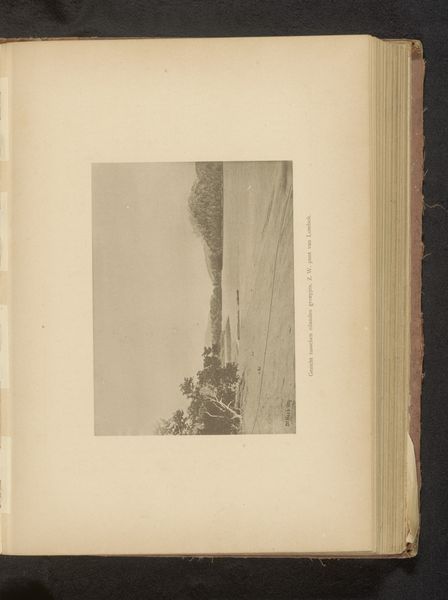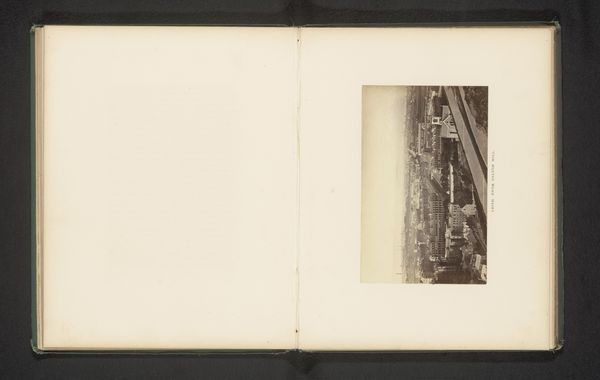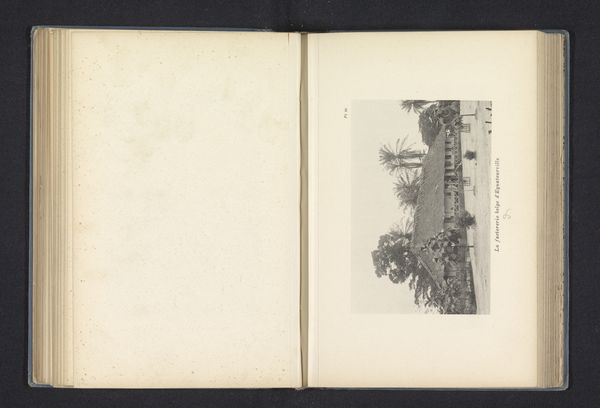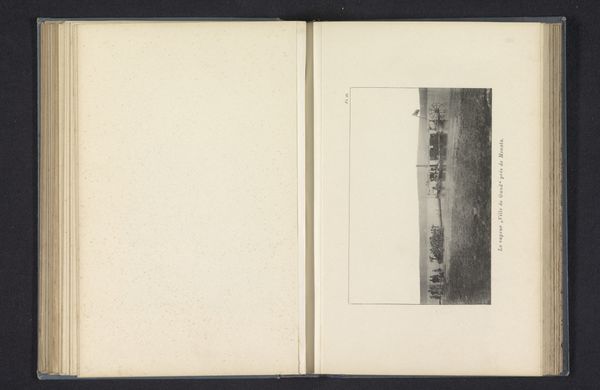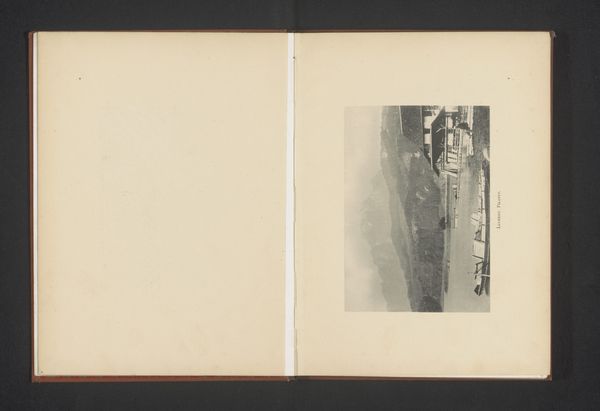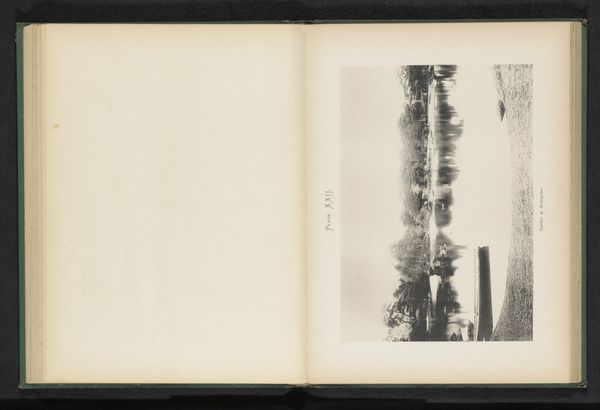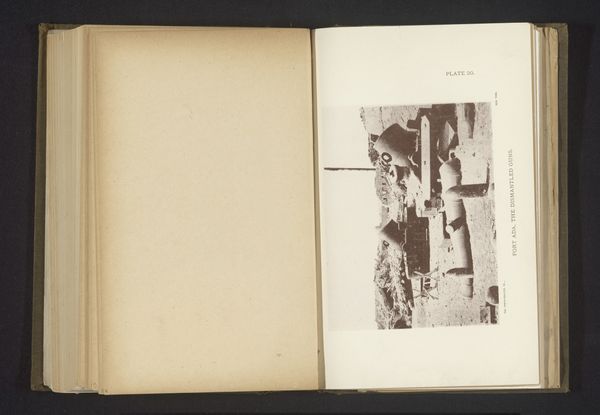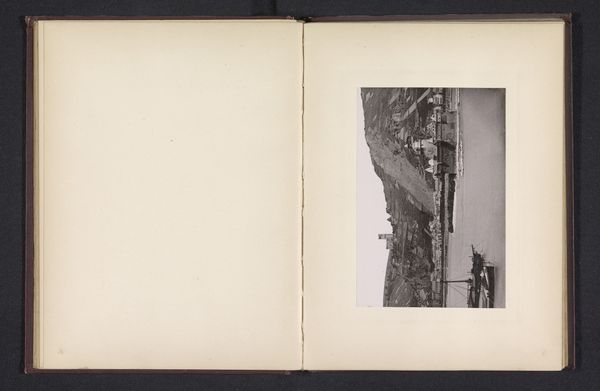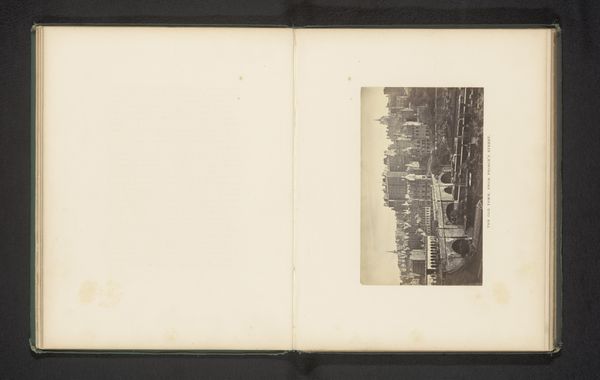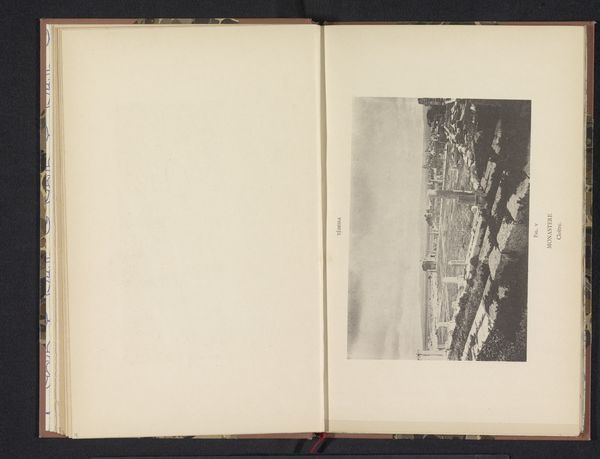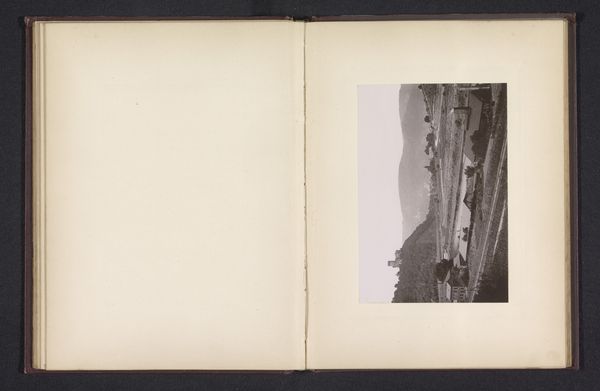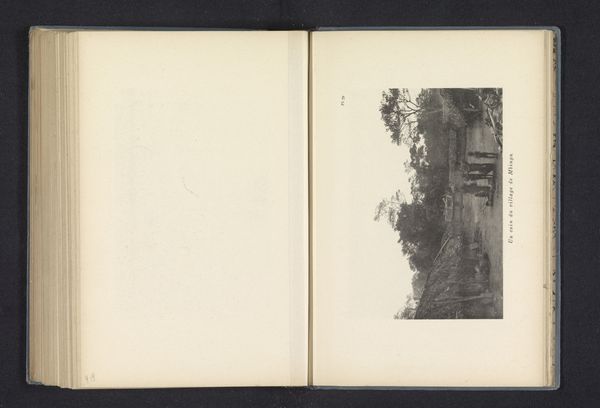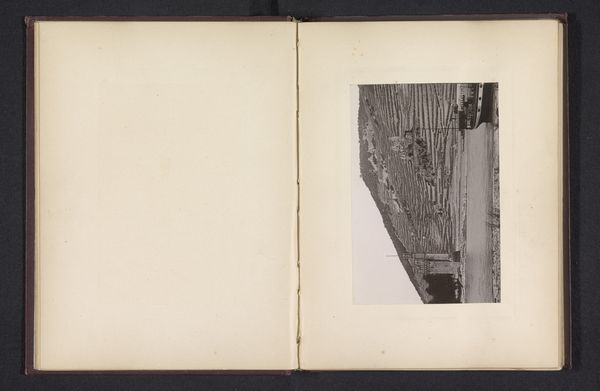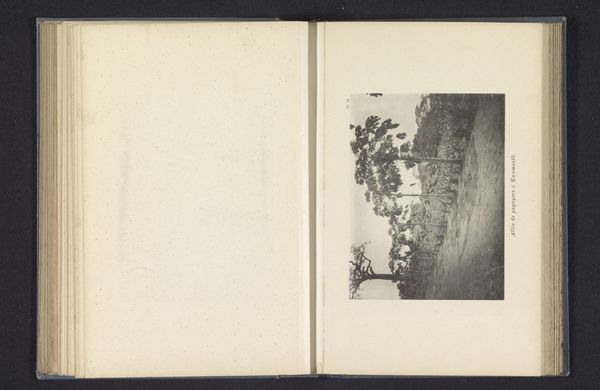
print, photography, gelatin-silver-print
# print
#
landscape
#
photography
#
photojournalism
#
gelatin-silver-print
Dimensions: height 94 mm, width 128 mm
Copyright: Rijks Museum: Open Domain
Editor: So, here we have an anonymous gelatin silver print from 1882, titled 'Train with English soldiers before the battle of Kafr el-Dawwar.' It’s stark. What I find striking is how crammed together those soldiers are. It really gives a sense of the tension and the collective weight of what they were facing. What do you make of this image? Curator: The density is exactly what resonates. The soldiers crammed on that train, the dark tones, they evoke a cultural memory of Victorian England at its imperial zenith, hurtling towards… what? Note how the photograph itself resembles an open book. Here we are, looking at a photographic record *in* a book. This format is an object that speaks of history and legacy as much as it is an image of a single event. What meanings can we gather from the integration of this picture in the open book? Editor: It's like we are looking back, interpreting this photograph like a page from history. But in this single frame what sort of symbols are visible? Curator: Trains, especially in the 19th century, held potent symbolic power; they spoke of industrial progress, and, significantly, of colonial reach. Consider also the absence of individual faces; each soldier becomes an interchangeable cog within the machine of war. Can we interpret that absence as erasing or effacing a loss? Or could the opposite be the message? Editor: I suppose that tension between progress and its human cost is powerfully visualized. Thanks; I am walking away with new awareness. Curator: Absolutely. Looking at this image provides insight not only into an individual historical moment, but into the deeper patterns of culture and its symbols.
Comments
No comments
Be the first to comment and join the conversation on the ultimate creative platform.
